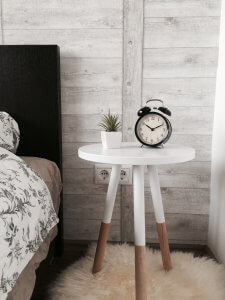Sleep Hygiene: How to set yourself up for a good night’s sleep

Do you regularly experience one or more, of the following:






(National Sleep Foundation)
Then this one is for you..
While the occasional night of poor sleep can noticeably affect your mood, energy and tolerability levels, ongoing sleep disturbances can lead to other issues. Things such as brain fog, poor job performance, emotional difficulties and even accidents or injury. Long-standing insomnia has also been associated with many chronic diseases, including diabetes, cardiovascular disease, obesity, and mood disorders.
What is Sleep Hygiene?
The actions you take in the lead up to bedtime, can contribute to your quantity and quality of sleep. Adopting certain habits that set you up for a healthy dose of z’s, is a practice termed ‘sleep hygiene’. Modern day life certainly predisposes us to poor sleep hygiene, with factors such as high levels of stress at work, the glorification of ‘busy’, and of course, addictive TV shows fueling that desire to click ‘Watch Next Episode” way past our bedtime.
So what can you implement to help set yourself up for a good night’s sleep?
The aim is to calm the nervous system and activate your “off switch”. Here are some of the top tips to do so:
- Steer clear of electronic devices for at least 30 minutes before sleep and avoid using these in bed. Night-time exposure to blue light from digital screens can interfere with your brain’s production of melatonin, the hormone responsible for making you feel sleepy. Tip: Use a bedside alarm clock, so you can charge your phone outside of the bedroom (eliminate the temptation).
- Do not use your bed as an activity centre. Your bed is for sleeping and sexual activity only. Avoid other pursuits, such as watching TV or working from bed, to train your brain to associate bed with sleep.
- Avoid stimulants such as caffeine and cigarettes, which can keep you awake or disrupt your sleep during the night.
- Create a pre-sleep ritual. Relaxing activities can help you unwind before hitting the sack and gradually transition your body from a wakeful state into a state of sleep. Your ritual may include stretches, breathing exercises, a hot bath, or sipping on a cup of caffeine-free tea.
- Ditch the alcohol. Many people use alcohol to help them fall asleep faster. However, drinking alcohol inhibits restorative sleep and increases the likelihood that you will feel groggy the next morning.
- Go to bed when you feel sleepy. While this may seem like a no-brainer, climbing into bed when you feel alert can create a negative association between being in bed and struggling to sleep, making it harder for you to relax.
- Get up. If you do not fall asleep within 20 minutes of lying down, get out of bed and perform a mundane activity until you feel sleepy enough to return to bed. Boredom is key!
If you are experiencing regular sleep disturbances, it is important to understand and treat the root cause. Seek professional advice from your GP or Naturopath today, to ensure optimal health. Our Osteopaths may ask you about your sleep habits too, as your quality and quantity of sleep impacts your recovery.
Adapted from:
Julia Mellios
BAppSc (Psych) BHSc (Nat) GradDip (Edu)
Nothing changes, unless nothing changes.
Begin your pathway to recovery with us today.

